It was cool to see there was this very intentional call for both educators and Black men to show up. It also dovetailed with some conversations I was having with other friends about, “What are we going to do? We have this problematic national administration and I can’t spend my time feeling frustrated about that. There’s too much work to do. So, what can we do?” I was really excited when I saw the call for board members because I thought, “Even if I’m not going to serve on the board, then I hope there’s an opportunity for the district and the board to start working together,” because there are some things we’re trying to do in the Ferguson-Florissant School District that fit within the space of what I know the Forward Through Ferguson board is trying to do, like, looking at things through a Racial Equity lens. And from the education standpoint, we need to figure out ways to help students in our community deal with equity, to address issues of trauma, and to help people deal with internalized racism.
It’s kind of funny to think that as a nation we still struggle with the idea that there can be long term trauma that can occur in communities. Somehow we accept PTSD when it comes to people who have been in war and maybe even people who have been in really bad domestic violence situations. But, for some reason, we have not acknowledged the full humanity, therefore, the full experience of trauma for African Americans. Why wouldn’t we say that because of this multi-century history of oppression and denial of opportunity that there would be some fairly significant residue that’s being left on us as a people, as a nation? My personal work is to make sure that there is effort and voice in that space. Because, as educators, our role is to create better pathways for human development and we have an ultimate responsibility to our young people. We are their caretakers. So, we owe it to them to create opportunities for growth and the exploration of ideas.
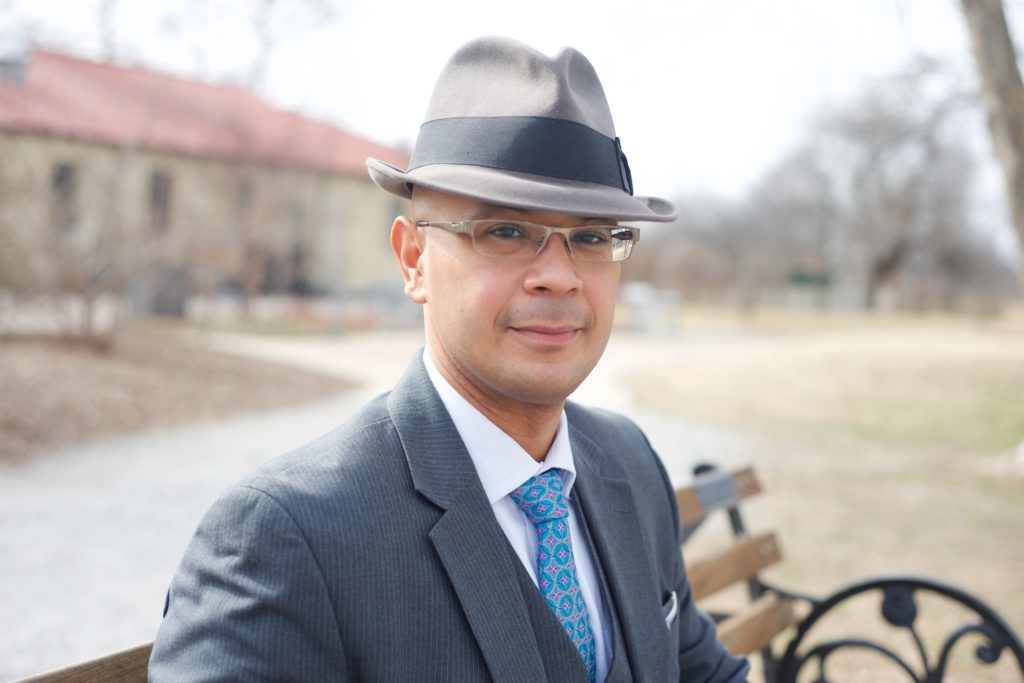
FTF Board Member Phillip Boyd, photos by Lindy Drew
I grew up sort of a geek. I loved science fiction, but I loved the idea that our goal is to learn, to explore, to grow, and that everyone can be a part of that. But we rob people of their potential. So there’s that aspect of wasting human capital. Why would we do that? We’ve got three hundred some odd million people. Could you imagine if we had a society where you had three hundred million people all pushing in the same direction and how powerful that would be? We don’t walk this earth alone, we walk it with each other. We’ve got no place else to go. Right now, we’re not capable of just jumping to Mars or jumping to another planet. We have to get it right here.
Right now, we’re not capable of just jumping to Mars or jumping to another planet. We have to get it right here.
I ended up in education after practicing law for about 10 years, and I was really moved by the things I saw as a municipal prosecutor in the North County Court, like when we had parental neglect charges that came in. People got charged with parental neglect if their child had gotten into repeated trouble during those times when there should be some level of customary control, not during school hours, but typically after school on the weekends. Almost every single family, and not all of them were poor, but all of them were African American, had struggles going on. You had parents scared for their kids and our only response as a county was, “You didn’t pay a fine, so you might have to spend a couple of days in jail.” People just needed help and I wondered why we would approach this situation where there was a struggle and our only response was a punitive path? That won’t solve the problem, especially when you know you’ve got families that are needing help and guidance. It was frustrating because you saw that their experience with school was such that it was simply a holding place for them, and there was nothing going on that helped them to see opportunities or possibilities for themselves.
I remember a couple of young men I sat down with who were about 17-years-old, and I said, “So, what’s kind of the pathway? What’s kind of your five-year plan?” They would just look at me. I’d say, “Okay, so this is what we’re going to do. In two weeks, I want you to sit down with your counselor and I want us to start mapping out when you’re going take the ACT. Are you going into the military? When are you going to take the ASVAB?” It was cool creating that allyship with them and their parents, typically their moms, because the conversation was different. Occasionally, I’d get to say to them, “Seriously, you love your mother. We’ve got to do something different here.” So, I put them under this kind of super-secret probation because I couldn’t let go. And when I went back into private practice, I kept thinking, “I need to go back to school to study what’s going on.”
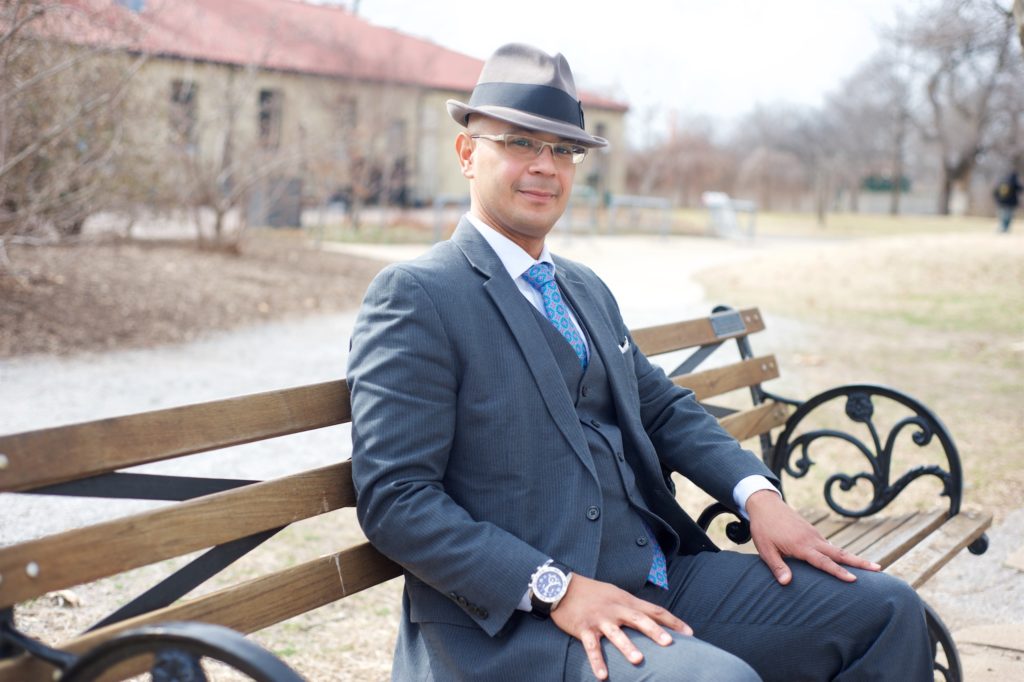
Thinking about my own background in Indianapolis, I grew up as an Asian and Black kid in a system that wasn’t quite sure how to define me. I mean that also in the sense of whether I was supposed to be someone in which people would invest their time. You see school systems based on race and class, and they’re designed to invest their energies into certain people. And if you are not considered part of this group that has some promise, then they’ll say, “Okay, we basically need you here so we can get the average daily attendance numbers, and get the money, and, hopefully, you’ll stay out of trouble and we’ll wait for you to graduate.” I felt lucky, too, because I came across some amazing teachers who definitely saw something in me, so my conversations were different than some of the ones my friends were having with their teachers. Even then, if you looked around, you could see there were people being trapped. There was this consistency, like, when I was taking physics and chemistry, I thought, “Where am I at? There’s only me and maybe one other person of color. Why is it predominantly White in these upper-level math classes.” And I wondered, “How do we break out of that?”
I would notice that the only reading material I would see at some of my friends’ homes would be Jet and Ebony magazines or maybe National Enquirer. My mom only went up to the fifth grade in Thailand, and even though my dad didn’t go to college, he was always an avid reader. It seemed like our house was covered with books. I didn’t realize until much later, but I was always in love with reading, whether it was comic books or novels. Recently, a junior at MICDS asked me some questions for her research project, and one was, “Do you think that how much a person reads outside of school impacts a person’s learning experience?” I told her, “That’s a great question because the answer is, ‘Yes, it does.’” So, how do we help children fall in love with reading, fall in love with curiosity? One of the first steps to becoming a learner is to say, “I’m curious and how do I discover this?”
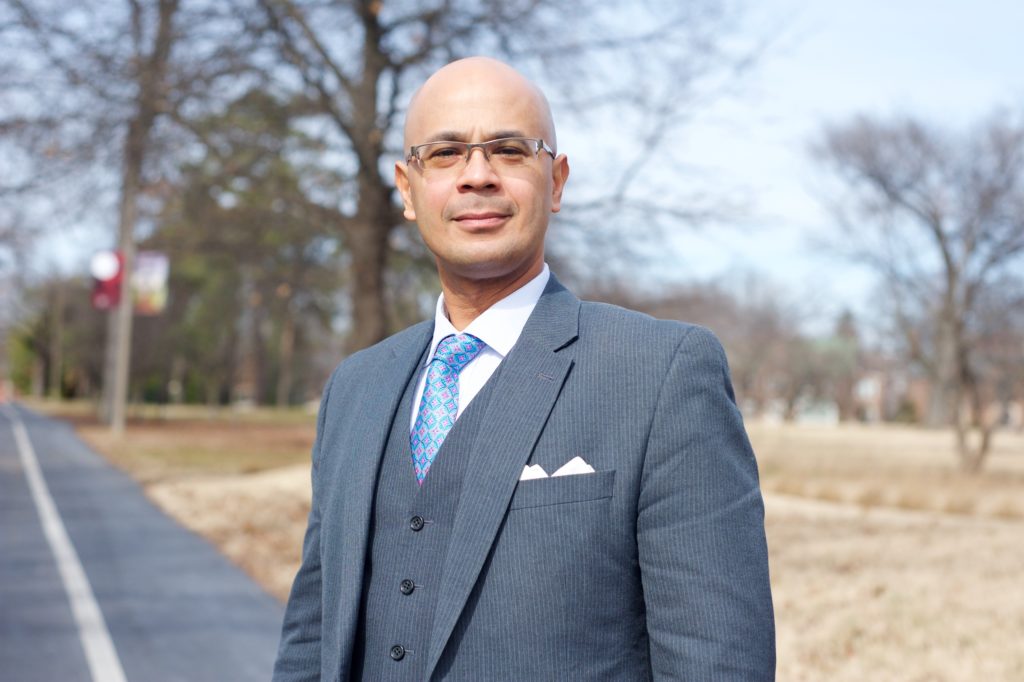
What I see too often in school systems is that it mirrors society around what Black people should and should not ask for. There’s a level of this denial of the intellectual identity of the Black person. “You can breathe. That’s okay. That’s cool. But don’t be too curious. Don’t ask for too much. Don’t really try to do things like use data to think about how you should understand problems.” It’s just now that we can consistently talk about racial disparities in criminal sentencing. It’s just now that we’re getting more comfortable with talking about racial disparities in out of school suspensions. It’s like we were constantly fighting against this denial that there is an issue. We must make sure we’re being honest about issues and utilizing data to move things. Saying that we, as a community, deserve to be able to advocate for the things we need in terms of opportunity and resources… Well, we’re still fighting to be treated as citizens and human beings. And I find that so curious. Why is that? Every few years we have to come up against this idea that Black people, people of color, should have this authentic voice and that it’s more than just a seat at the table. It really is being able to sit at that table and talk at that table and then put forth policies on that table as opposed to thinking we just want to show up.
It really is being able to sit at that table and talk at that table and then put forth policies on that table as opposed to thinking we just want to show up.
It’s my responsibility to do this work and we’re at a good time where there’s a confluence of good information and good thinking right now. I think about things like Dr. Jason Purnell’s report For the Sake of All and he’s just a bad brother. No matter who you talk to – Black, White, Asian – they know that Jason comes from this place of rigorous analysis with a lot of passion for the work. People have a hard time criticizing that report and that’s so powerful because they’re wondering, “Why do we have such issues in terms of mortality rates? What’s going on with the birth rates?” Then there’s the idea that we can actually use strong, data driven policy to impact these things. Again, it goes back to this idea that we’re wasting a lot of human capital right now.
When I first moved here, one of the things I used to do was drive along North City. My sister’s a landscape architect and she said there’s some amazing building stock in St. Louis. I was so amazed because there’s actually some really good architecture and architectural history in St. Louis. So, I’m driving around North City and imagining what the neighborhoods used to be like. Sometimes you’d stumble on someplace where there was a row of street-level storefronts that had been abandoned for a long time, and I could just imagine what it was like back in the day. It must have been vibrant. It must have been an amazing place to be. Not being from St. Louis I’d think, “What happened? How the hell did we get to this place where there is significant acreage of despair? Where are the voices to say that not only is this blight unacceptable, but then the political blight has happened? Where’s the voice for the people in North City? How are we trying to empower people who have been faced with decades of neglect, and political neglect? So, in terms of why do I do this work? It’s because I feel that, collectively, we could change this now.
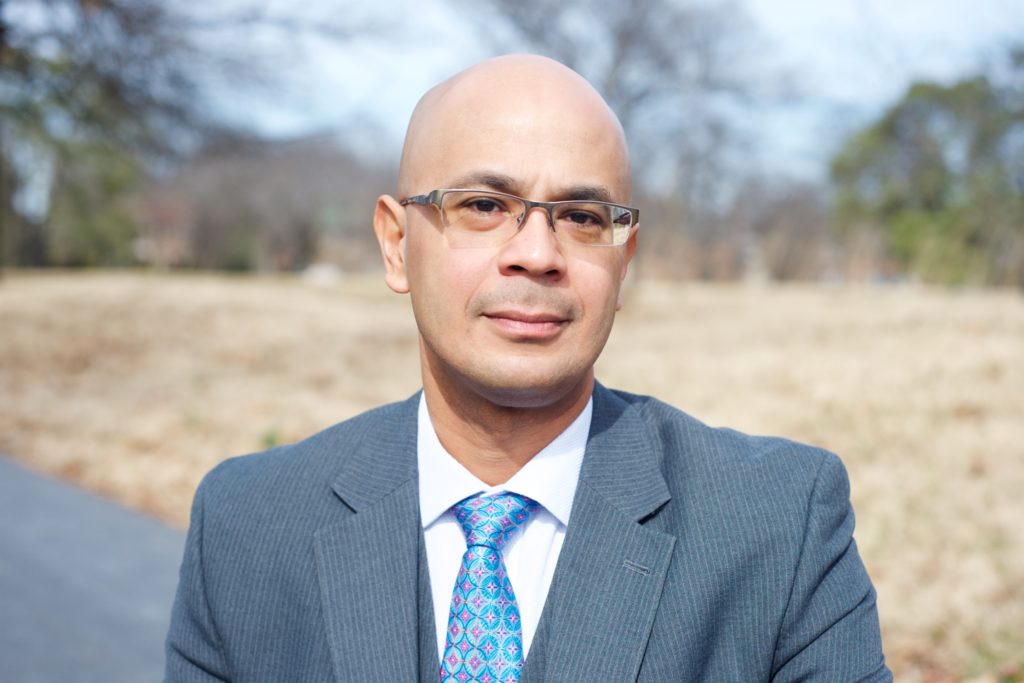
When I was at Normandy as the Assistant Superintendent, there was a young man who died at the high school. It was a really tragic accident. He was playing this punching game with his friend and they were just being silly. They’d punch each other in the chest and run. So, his friend punched him in the chest, and I forgot what the condition is, but there is a medical term for what happens if you’re punched in between heartbeats and your heart can stop. His heart stopped, and he died in the lunchroom. They tried to revive him, but he was brain dead by the time they got to the hospital. A week later, there was this kid in Ohio who died of the same thing. He got hit by a softball. When the young man died in the spring, it had been a really incredible school year, and not in the best way. I remember at one point, I think it was 1:00 p.m. on a Friday and I was sitting at my desk and it felt like someone took a two by four and hit me in the head. I got up from my desk and said to my administrative assistant, “See you on Monday.” I said, “I apologize.” It felt like someone literally turned a switch in me that said, “You can’t think anymore.” So, when he died, it was this feeling. And it wasn’t just him. It was a bunch of kids.
If we had created a different setting, helped to perpetuate a different culture in that school, would we have the issues that we have? I was conflating a lot of things because I was frustrated with the lack of progress we were making at Normandy. I was frustrated that we weren’t having what I felt were authentic conversations about how poverty was affecting our kids. Like, why can’t we move the needle for where our kids are? Poverty, for us, it kills. It’s not like this is just an academic exercise in saying we need to look at a couple of different things our community needs around mental health, economic development, and prenatal care. This stuff is killing us. Our ACT, ELA, and math scores were deplorable. We were at this near 99% reduced lunch rate. Have you walked through some of our neighborhoods? Have you seen there are multiple streets without street signs? And on another block you see three houses bombed out. I started looking at the unemployment rates in all 24 municipalities and it’s just ridiculous. Except for this middle part with Pasadena Hills, Pasadena Park, and Belle Nor, everyplace else has double digits or more for rates of unemployment in our little district.
We don’t educate children to be self-actualized. We educate children to be compliant. And we’re educating children to be compliant in a system that, when there’s a severe lack of social capital for that individual, their lack of compliance is full of opportunities for death and opportunities for struggle.
I’m a big believer that true character education requires action. You can’t just get respect. You have to model respect. And kids have to have an opportunity to engage in that. We don’t educate children to be self-actualized. We educate children to be compliant. And we’re educating children to be compliant in a system that, when there’s a severe lack of social capital for that individual, their lack of compliance is full of opportunities for death and opportunities for struggle. So our education needs to be something that empowers kids, especially kids that are coming from high poverty communities. The school day has to look different. I’m not saying that because kids are poor they can’t learn. I’m saying that sometimes kids are poor, and there needs to be other structures within that school that speak to their humanity. Right now, this whole idea that we just need to concentrate on the learning and the pedagogy — where has that gotten us? We’ve been doing that. What are we going to do differently? I think about my own kids and I want all these children to have what my kids have, which is a certain level of emotional safety, the opportunity for exploration, and the opportunity to have their ideas respected and to have their interests celebrated. Learning is a developmental process. When we just look at education as this institution that delivers content, we miss out on what we should be doing, because we owe those kids.
People say, “We can’t impact everything outside of school.” I say, “You’re right. But we can partner.” I thought we were really trying to do some great things with Beyond Housing and then the 24-1 movement. We had created one of the first school district level based mental health alignment committees. We were working with agencies and meeting monthly. We were getting better conversations just around that. We started looking at how we can make the case for providing better emotional and mental health support to our students so that it would impact academic outcomes. And there were some good things that were happening, but it never seemed fast enough.
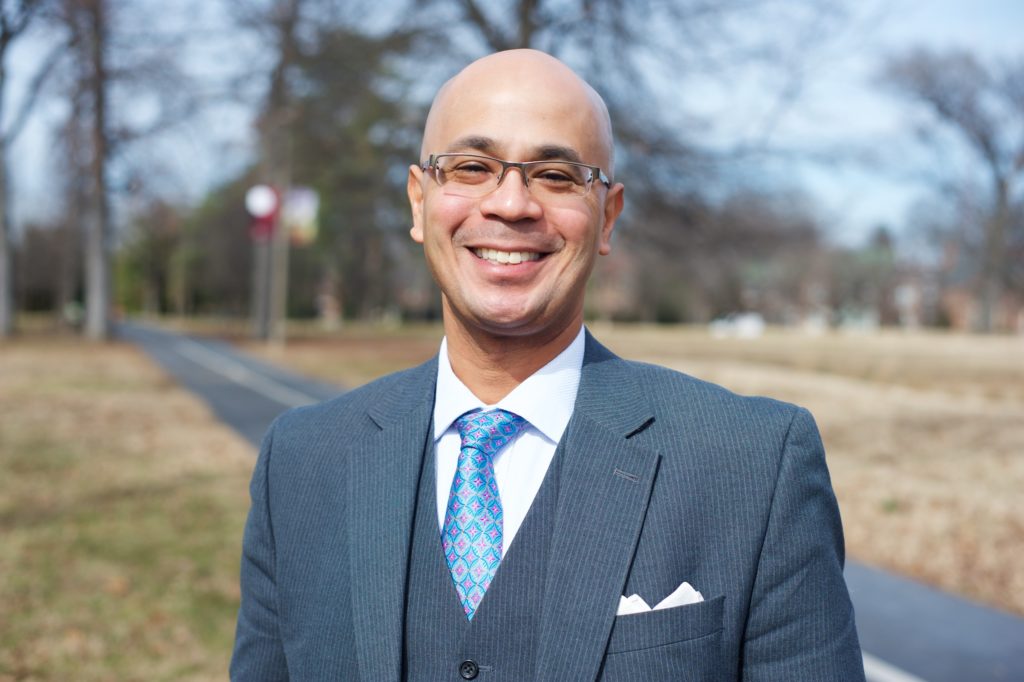
I worry about complacency. People say, “What happened in Ferguson — that’s over.” It’s not over. There are just seasons. We have an opportunity right now to do something amazing and to honor the human capital of Black folk and Brown folk and this is the time to do it. If we can create better patterns, we can look at this through a health lens, through a Racial Equity lens, through a workforce development lens. It all leads in this direction that we’re moving forth in a way that’s very empowering. And we’re going to have to have some people get over this idea that because we talk about empowering communities, especially communities of color, that somehow means other communities are going to lose. No. Wouldn’t it be great for everybody to be part of this economic engine? Let’s all lift each other up. We’ve got a pretty big pie. If we’re talking about equity, I don’t have to take anything from you. I just need to be able to have access to what I should have as a human being. It’s trying to get people past that, and I think we will. It’s just going to take some time.

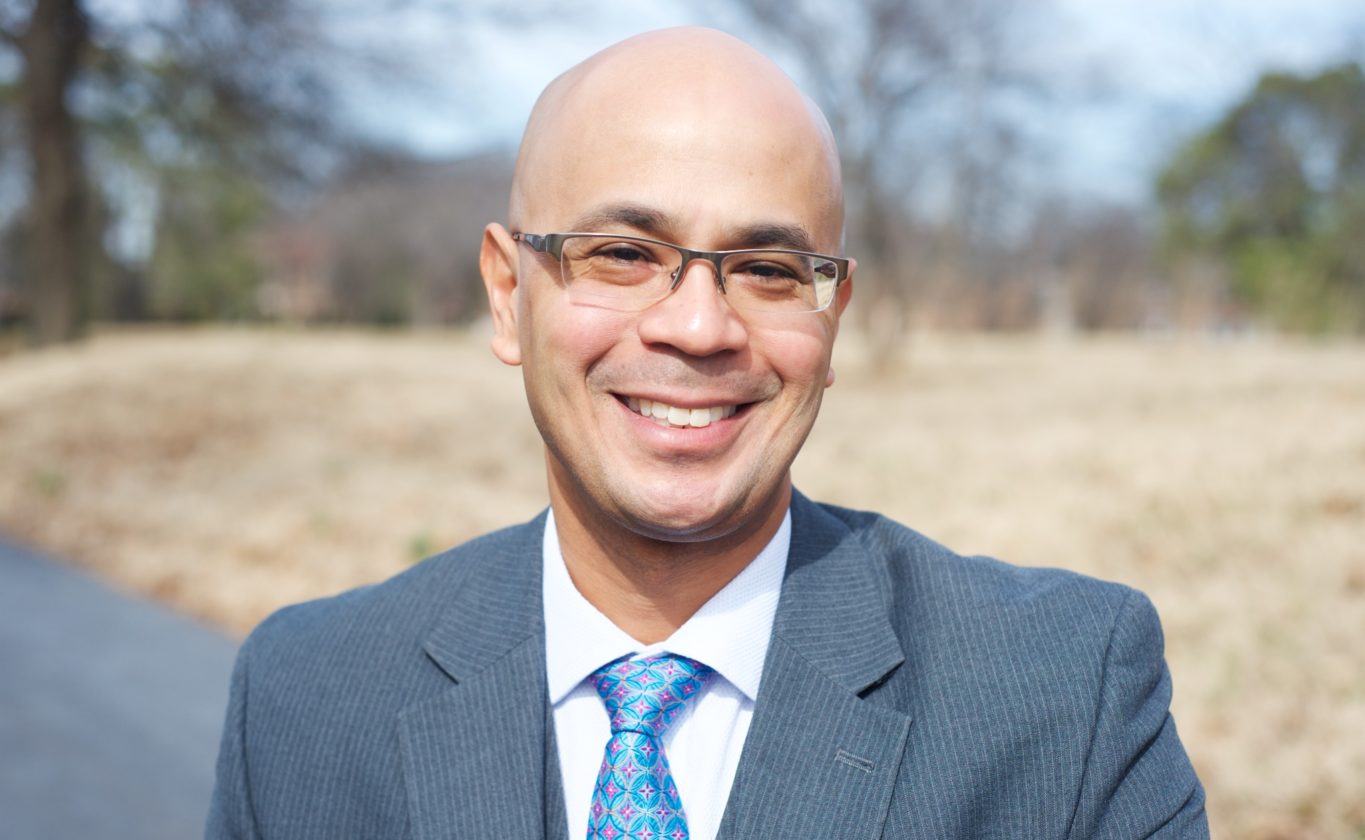
#FwdThruFerguson